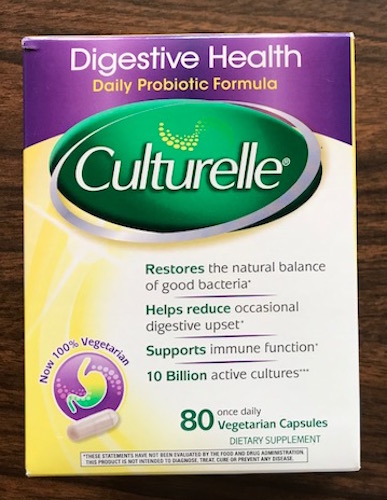Should I Take a Probiotic?
 When you hear the word “bacteria,” infection and ill health may come to mind. However, our bodies contain a variety of types of bacteria, many of which are crucial to overall good health.
When you hear the word “bacteria,” infection and ill health may come to mind. However, our bodies contain a variety of types of bacteria, many of which are crucial to overall good health.
The gastrointestinal tract, or “gut,” is home to our microbiome, which contains both good and bad bacteria and helps us digest food, fight toxins, and regulate our immune and digestive systems. So, how do you ensure that your gut stays healthy? Talking to your doctor about taking a probiotic supplement and ensuring your diet is filled with gut-healthy foods is a great place to start.
Why do I Need a Healthy Gut?
Your gastrointestinal tract, or “gut,” is home to several types of bacteria. ”Good” gut bacteria helps keep our immune systems strong, aids in digestion, regulates hormones like the feel-good chemical serotonin, and helps rid our bodies of toxins.
Good gut health contributes to improved body functioning in some surprising ways. Good bacteria can help fight the bad bacteria that leads to urinary tract infections, yeast infections, and even some allergies. Probiotics have also been shown to be beneficial to expectant mothers.
The gut also houses “bad” bacteria which, when it outbalances the good, can cause stomach upset, weight gain, indigestion, or even immune disorders. For good gut health, it is important that you have enough good bacteria to counteract the bad.
There are a number of ways to ensure that your gut stays healthy. You can take a daily probiotic supplement, add probiotic-rich and prebiotic foods to your diet, and protect your good bacteria when prescribed a course of antibiotics.
Probiotic Supplements
To ensure good gut health, talk to your doctor about adding a probiotic supplement to your health regimine. A probiotic supplement may be especially beneficial to those taking antibiotics, as it can replace the good bacteria eliminated through an antibiotic course, strengthen your immune system, and manage negative side effects.
The most common bacteria found in probiotic supplements are Lactobacillus or Bifidobacterium. Supplements can be found in most health food stores and in many drugstores, and may come in capsule or powder form (which you could sprinkle on food or add to water or shakes). For otherwise-healthy adults, aim for a daily dose of five billion to 10 billion CFU’s, or colony-forming units, and be sure to take just one dose per day.
As always, talk to your doctor before making a change in your daily health routine, especially if you are an older adult, have an immune deficiency or are undergoing cancer treatment.
Add Probiotic-rich Foods to Your Diet
In addition to taking a daily supplement, try and round out your daily diet with a few probiotic-rich foods. Probiotics can be found in a range of good-for-you foods that are readily available at your favorite grocery store.
Here are some good dietary sources of probiotics:
- Yogurt or kefir, a dairy drink which can be found near the yogurt
- Kombucha, a fizzy drink that comes in many delicious flavors
- Fermented veggies, like sauerkraut, kimchi, or pickles
 In addition to eating these foods and taking a daily probiotic supplement, be sure to eat plenty of foods that help probiotics do their job, known as “prebiotics.” These are the foods that the healthy bacteria found in probiotics eat to survive and thrive in your gut:
In addition to eating these foods and taking a daily probiotic supplement, be sure to eat plenty of foods that help probiotics do their job, known as “prebiotics.” These are the foods that the healthy bacteria found in probiotics eat to survive and thrive in your gut:
- Bananas
- Garlic and onion
- Pistachios
- Wheat and oats
- Grains such as quinoa or millet
Adding a few of these foods to your daily diet is a great idea, no matter the health of your gut. A well-rounded diet consisting mainly of whole foods will not only ensure that you have plenty of good bacteria, but that the rest of your body is healthy, too.
At Kennedy Chiropractic, we are committed to helping you live your healthiest, happiest life. Proudly serving customers in Wauwatosa, we are here to provide unparalleled chiropractic care and answer any questions you have about how to live a healthy life. Call us now at (414) 443-1515 to schedule an appointment and visit our website today.



